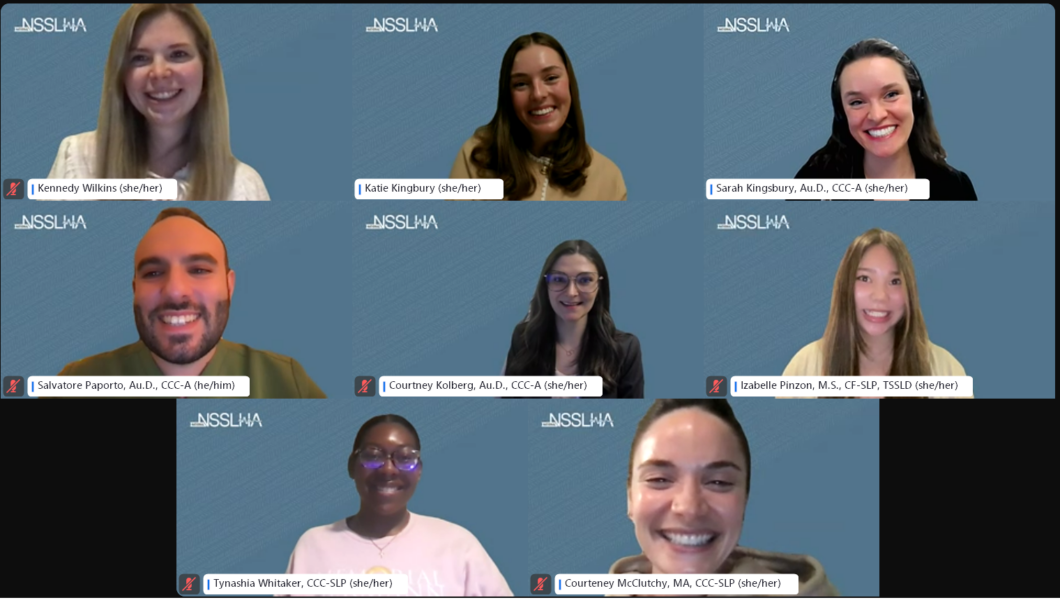What does life after graduation really look like—and how can students prepare for the transition? During this Office Hours session, early-career professionals in audiology and speech-language pathology shared their candid experiences, practical tips, and career advice with current students. From navigating CFs to building confidence, here’s what they had to say. Watch the full recording below:
1. Finding Your Path After Graduation
Each panelist took a different path after graduation, highlighting that there’s no single “right” way to launch a career in the CSD field. Some knew exactly where they wanted to work, while others shifted settings after discovering new interests. Flexibility, curiosity, and openness to change were common themes. Career paths can evolve, and that’s perfectly normal.
2. What a Typical Workday Really Looks Like
The first year in the field brings a steep learning curve, but panelists emphasized that routines eventually fall into place. Daily responsibilities can include direct services, documentation, parent communication, collaboration with other professionals, and managing a full caseload. Staying organized and adaptable helps make the workload more manageable—and no two days look exactly the same.
3. Feeling Ready, and Being Ready!
Graduate school lays the groundwork, but professional growth continues long after graduation. Panelists shared that while they didn’t always feel fully prepared, they leaned on the skills they had and stayed open to learning. Clinical practicums, time management, and communication skills all played a big role in helping them transition more smoothly into full-time work.
4. You Don’t Have to Do It Alone
Even after school, having a strong support network is essential. Whether it’s through coworkers, former classmates, mentors, or online communities, finding people to connect with helps ease the transition and build confidence. Some panelists emphasized the value of mentorship during the Clinical Fellowship (CF) experience, while others leaned on peer support to troubleshoot challenges and share wins.
5. Boundaries, Burnout, and Balance
Burnout is a reality for many early-career professionals, especially when adjusting to full-time work. Panelists encouraged students to set boundaries early, protect their time, and make space for activities outside of work. Taking care of your well-being helps you show up better—for yourself and the people you serve.
Starting your career in the CSD field is both exciting and challenging. The early-career professionals on this panel reminded us that it’s okay not to have all the answers—and that growth takes time. If you’re in the early stages of your journey, lean into learning, connect with your peers, and give yourself grace as you find your way.

